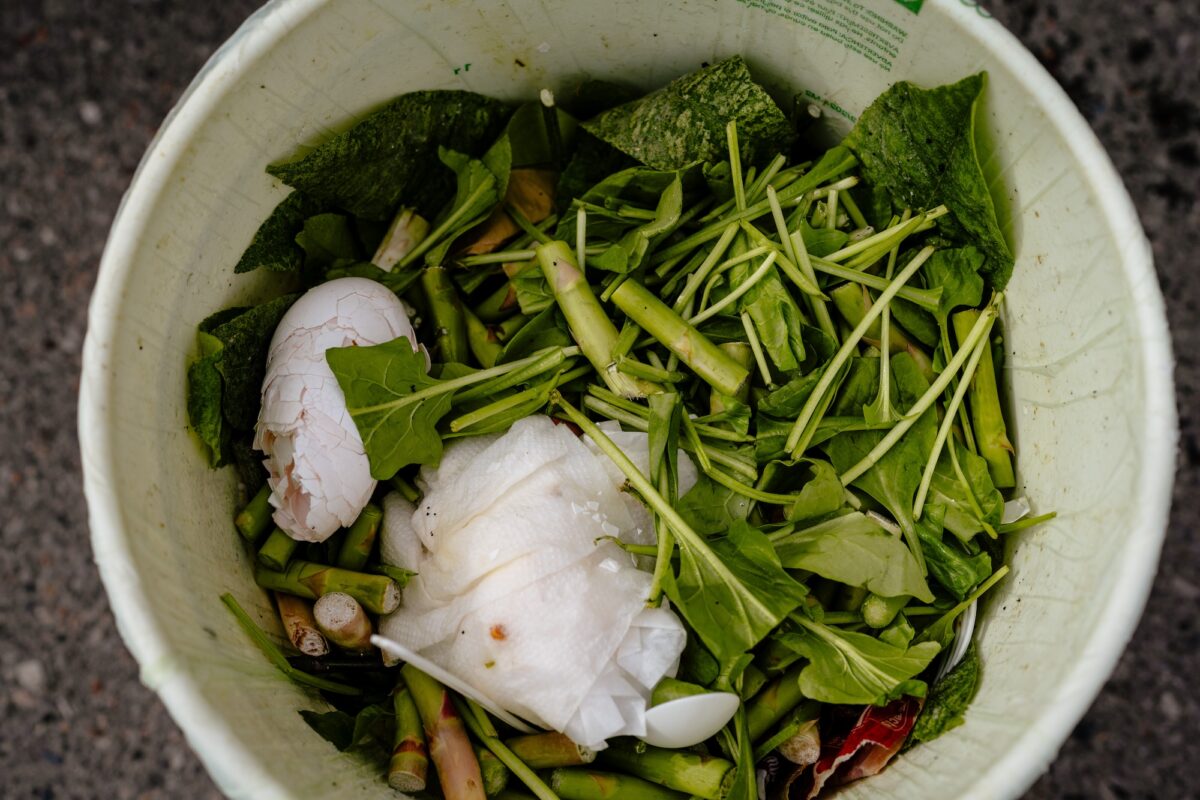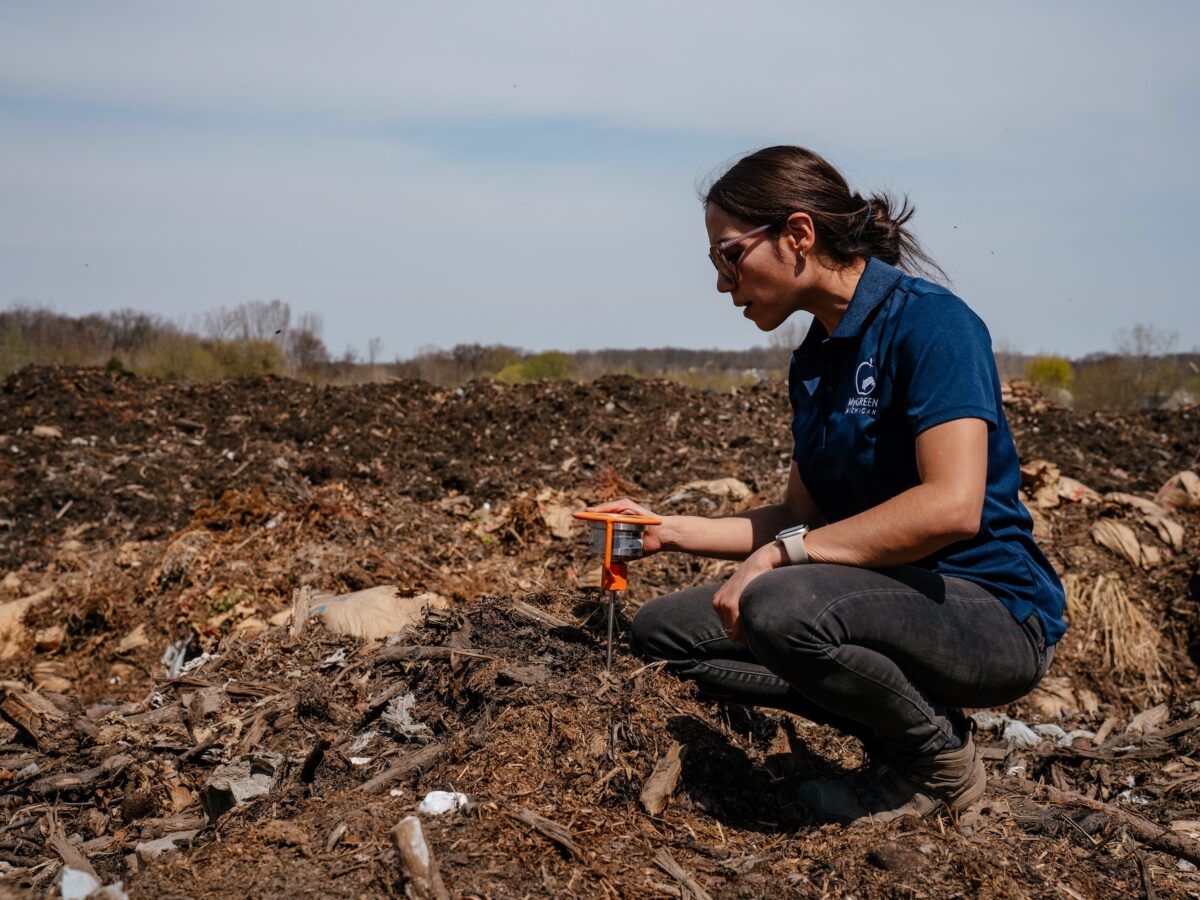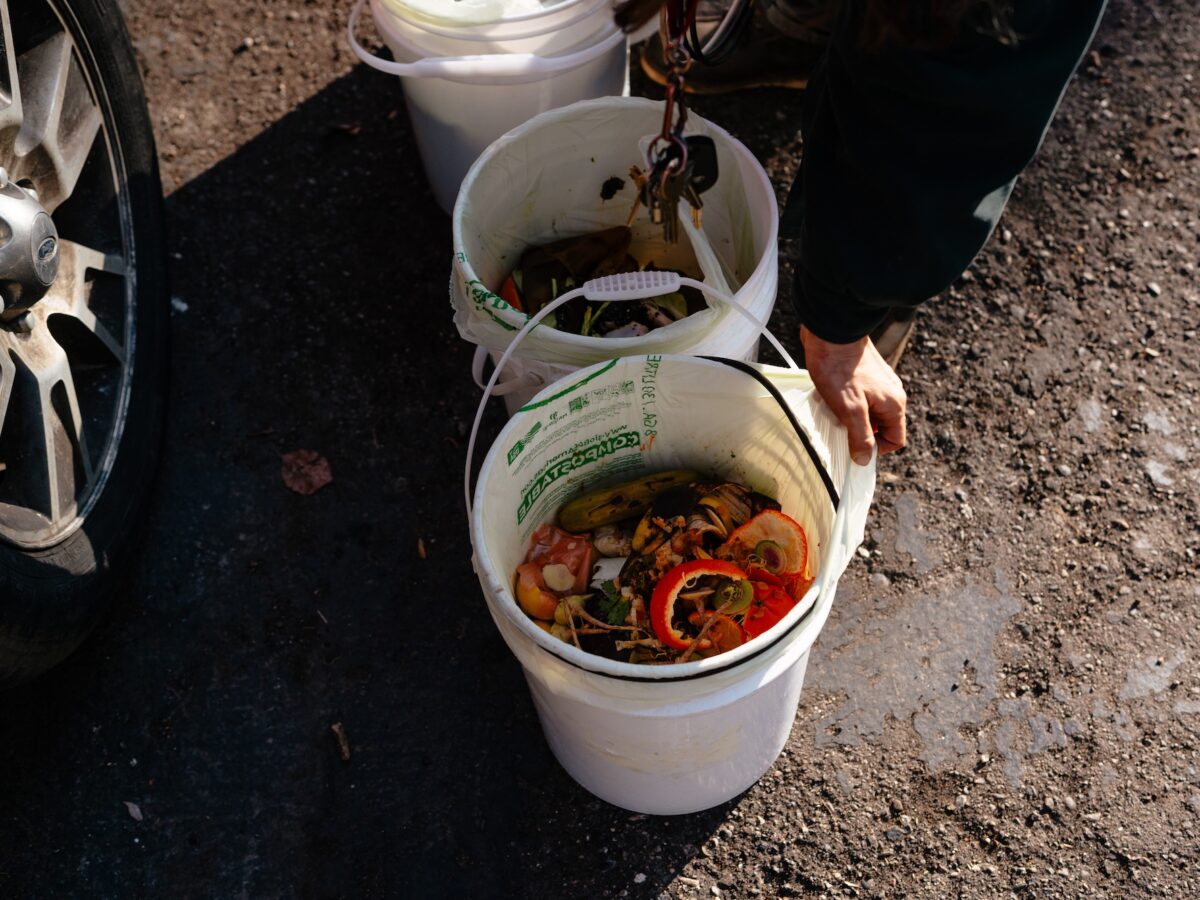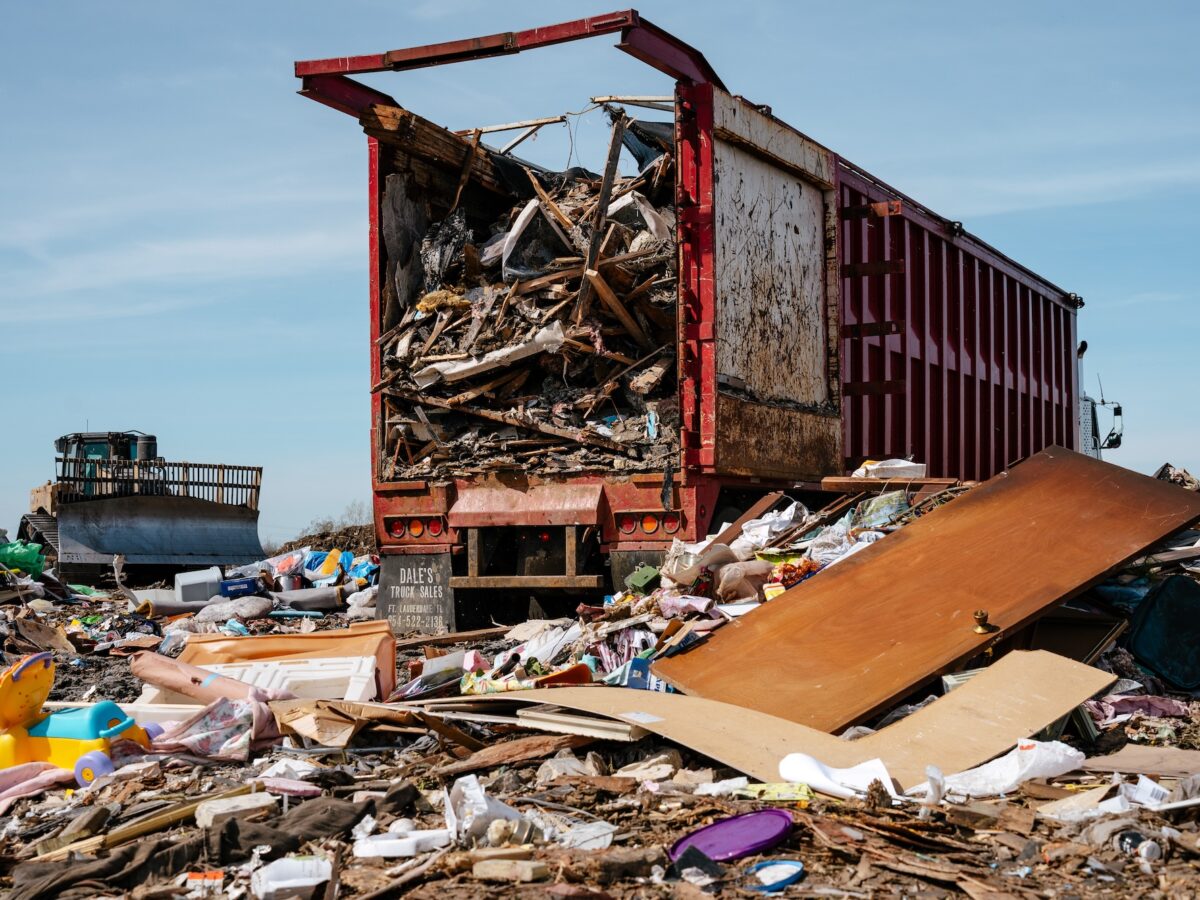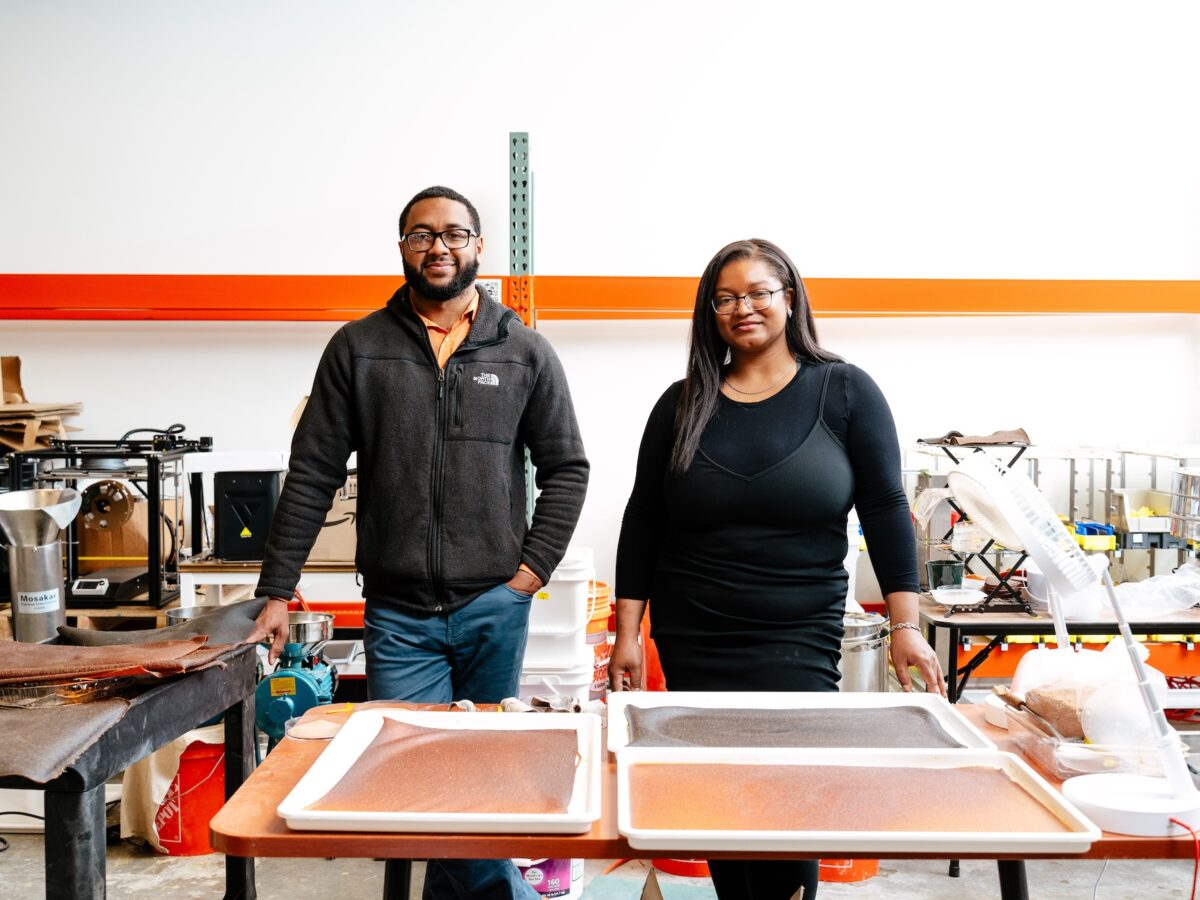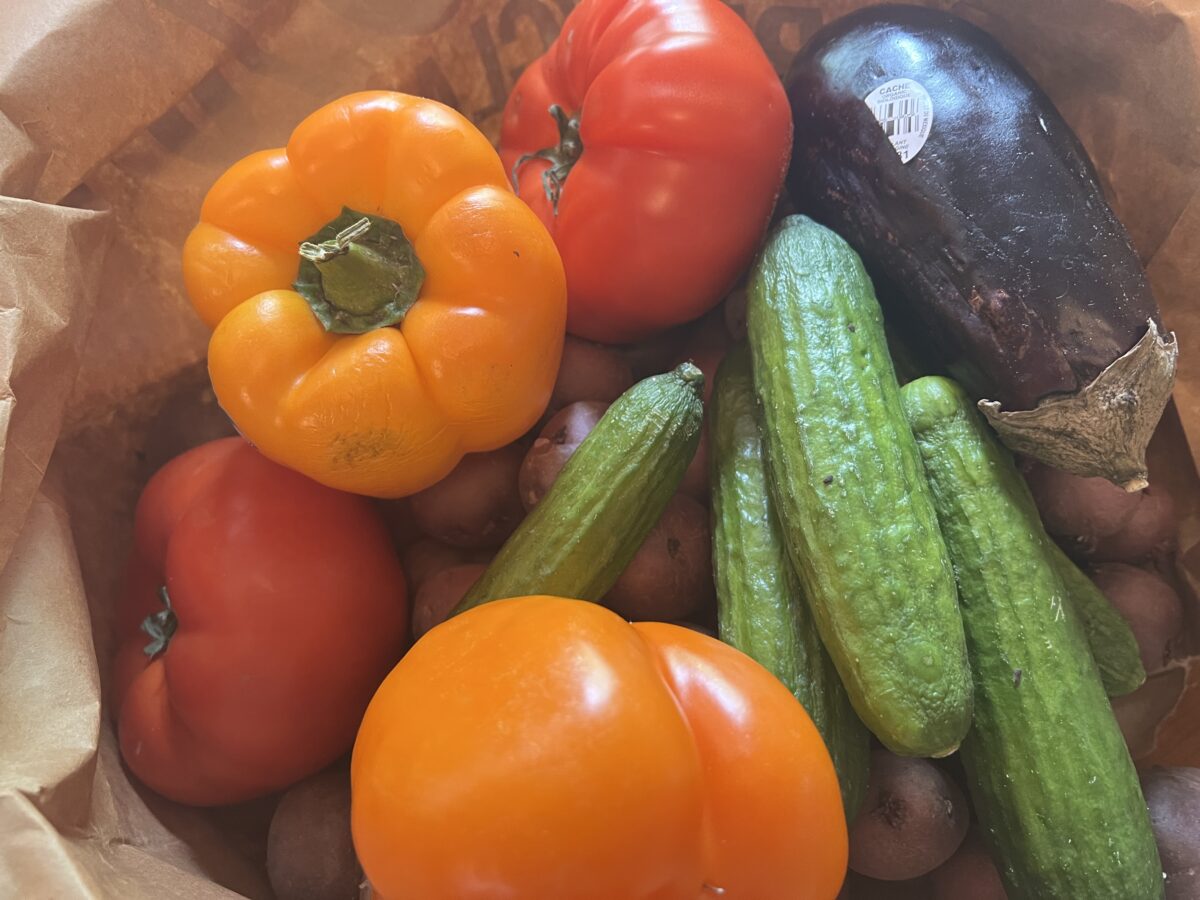Overview:
- In Detroit's Riverbend neighborhood, grassroots efforts like Sanctuary Farms and Midtown Composting & Recycling Co. are leading the charge to transform food waste into resources, yet Michigan faces a critical juncture.
- As interest in composting grows, infrastructure gaps and outdated rules pose significant hurdles.
- Municipalities and schools are stepping up with new programs, but systemic barriers and low public awareness threaten to stall progress in closing the food loop.
In a pocket of Detroit’s east side, Jøn Kent steps carefully between compost piles and fruit trees, pointing out patches of yarrow sprouting from a former dumping ground now transformed into a neighborhood farm. He gestures toward bins of pineapple scraps dropped off by a nearby juicery—today’s raw ingredients for tomorrow’s soil.
“This is life right here,” he says, plunging his hand into a mound of crumbly black compost. “This is what’s going to keep us going as a species.”
Kent is co-founder of Sanctuary Farms, a community-rooted composting and agriculture initiative working to close the food loop in Detroit’s Riverbend neighborhood. His vision is radical in its simplicity: return food waste to the land that feeds the community, and build systems rooted in equity.
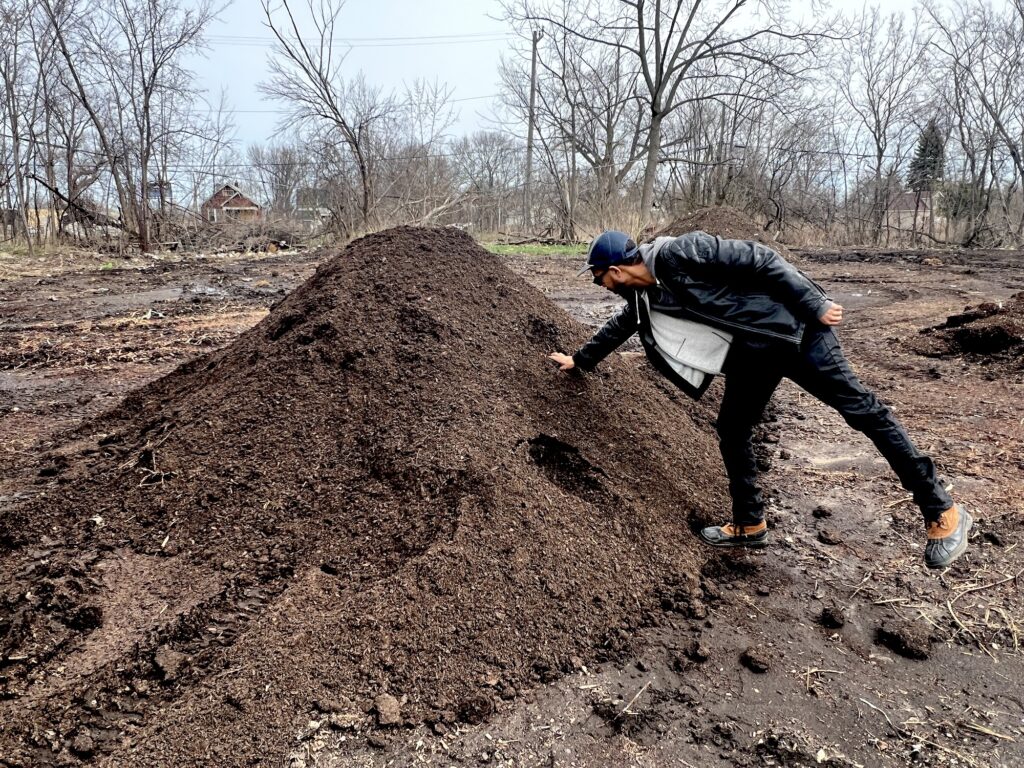
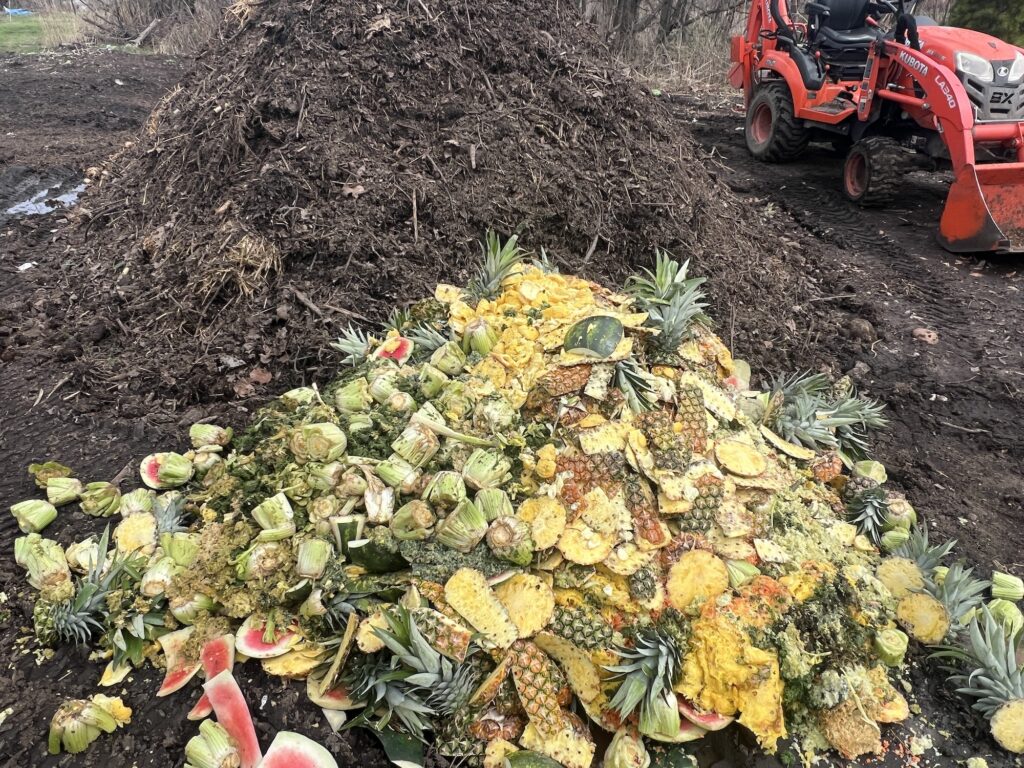
“We’re trying to prove that regenerative practices can thrive right here in the city,” Kent said. “It’s not just about waste. It’s about healing land and people at the same time.”
He said composting plays a crucial role in restoring both. “The food we throw away still has value,” Kent said. “It’s not trash—it’s a resource.”
Across Michigan, composting has emerged as a critical—but still limited—climate solution. When food waste is buried in landfills, it decomposes without oxygen, producing methane, a greenhouse gas that traps more heat in the short term than carbon dioxide. Composting avoids these emissions while creating nutrient-rich soil.
Food is now the most common material in Michigan’s waste stream, and most of it still ends up in landfills. Only a fraction of registered composting sites in the state accept food scraps. Still, a growing number of farms, drop-off sites, and haulers are working to change that.
That includes grassroots operations, such as Sanctuary Farms in Detroit, curbside haulers like Midtown Composting & Recycling Co., and commercial processors like Denali, which works with big-box retailers like Meijer and Walmart. These parallel systems reflect rising interest in waste diversion but also the fragmentation that defines composting in Michigan today.
Yet even as interest grows, the path forward is anything but clear. Infrastructure gaps, outdated permitting rules, and low public awareness continue to stall progress. And with Michigan’s low landfill tipping fees, composting still struggles to compete economically—though legislators recently reintroduced legislation to raise that fee.
Municipalities and businesses face cost barriers, a lack of processing capacity, and zoning or permitting rules restricting composting. Many residents aren’t sure how—or where—to compost. Even among those willing to participate, there’s often a shortage of education, tools, and resources to support proper sorting and collection.
Despite these challenges, compost is growing in Michigan. Between 2019 and 2024, several composting facilities in Michigan reported significant growth in the volume of organic material processed.
Spurt Industries, for example, reported collecting just 190 tons in 2019, but more than 4,600 tons in 2024—a more than twenty-four-fold increase. The City of Ann Arbor’s compost center saw a 30% rise in tonnage over the same period.
As interest in diverting food waste from landfills grows, Michigan is at a crossroads: Will it invest in systems to support composting at scale—or allow food waste to remain a climate and economic liability?
“You don’t just turn this on by flipping a switch,” said Mike Csapo, general manager of the Resource Recovery and Recycling Authority of Southwest Oakland County.
“You’ve got to evaluate where the material can go. If the destination facilities aren’t ready yet, you’ve got to nurture them along. You’ve got to put the collection systems in place,” he said. “It’s going to take planning. It’s going to take patience.”
Grassroots action: Community-scale composting
Kristina Manolescu slings a five-gallon bucket of food scraps from a customer’s porch into the back of her truck and checks her schedule—over 140 stops today. “This is compost season,” she says, flashing a gritty smile. She and her husband, Michael Edwards, run Midtown Composting & Recycling Co., which collects food scraps from more than 1,200 homes and businesses across Southeast Michigan.
Although they didn’t found the company, Manolescu and Edwards built on its foundation. Midtown Composting began in 2015 under Tim Campbell, who focused on commercial accounts. When Campbell invited them to take over residential pickups, they accepted. “Tim wasn’t a big fan of doing the residential compost pickup,” Kristina said. “So he was like, ‘Do you guys want to do it?’ And we were like, ‘You know what? I think we do.’”
Campbell later sold his commercial accounts to CO Sustainability, while Kristina and Michael incorporated Midtown Composting & Recycling Co. in 2020, focusing on residential and small-business service.
Their model is simple and scrappy: customers subscribe to pickups, receive secondhand buckets cleaned and reused by the team, and can request fresh compost delivered to their homes each spring. The cost of a weekly pickup currently runs $30 a month.
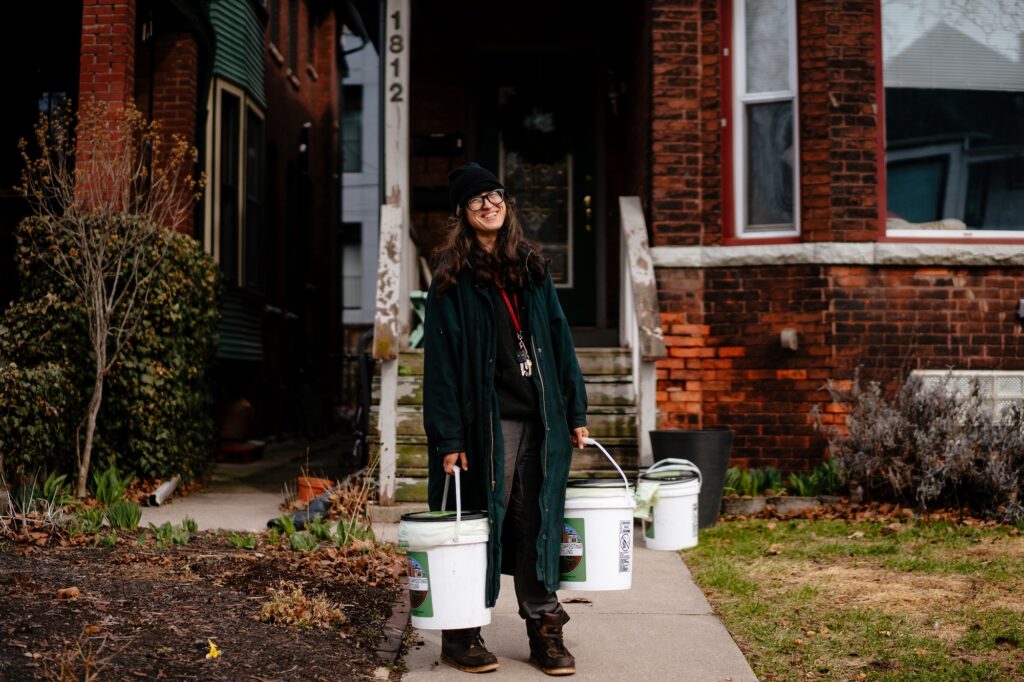
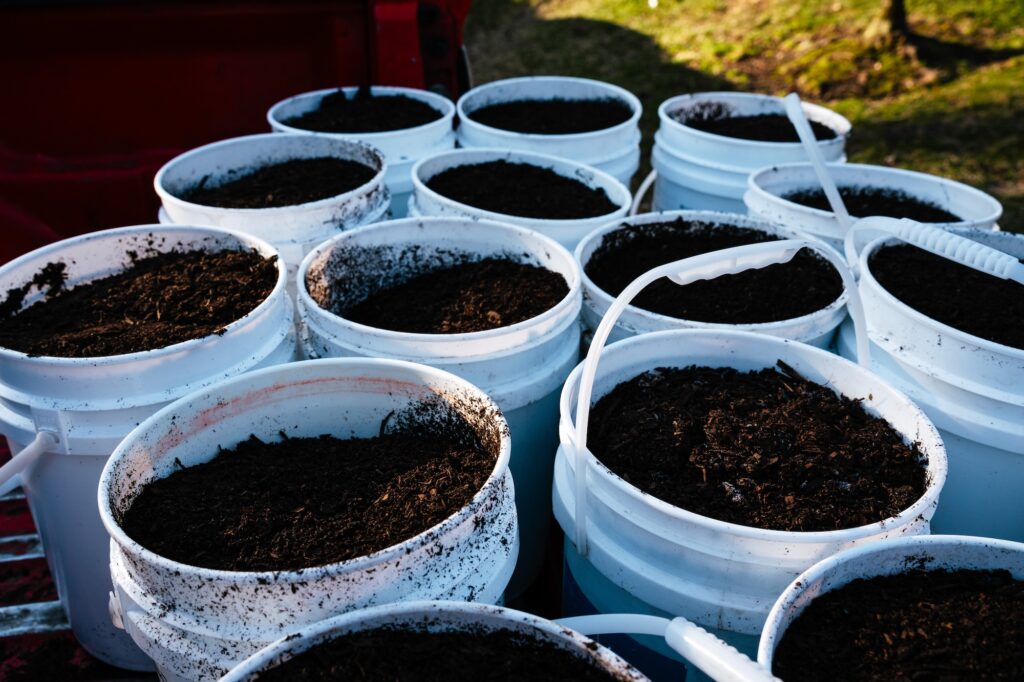
It sounds easy, but building the business has been a massive undertaking. Initially, “we were doing 600 stops a week with one truck,” Kristina said. “I was working overnights and still hauling buckets.” Midtown now operates four vehicles and uses an app to manage routes.
Things have improved as the business has grown and added capacity, including more trucks and drivers. But it’s still running on razor-thin margins. “There’s not a lot of profit in dirt,” Edwards said. “But there’s a lot of value in the community it creates.”
For Manolescu, that community connection is central to Midtown’s mission.“We’re your neighbor,” she added. “We see your kids. We wave to your grandma. This is about building trust, not just hauling scraps.”
That community includes Kent at Sanctuary Farms, who processes some of Midtown’s collected food waste into compost. “People get to see the result of their choice to be more responsible with food waste,” Manolescu said.
Sanctuary Farms is also part of a new grassroots coalition—the Detroit Community Compost Collection Project—which is launching a citywide pilot to reduce the estimated 251 million pounds of food waste generated in Detroit each year.
The project, supported by over $1 million in recent state grants, aims to expand composting infrastructure while prioritizing community leadership, environmental justice, and data collection. Members include the Detroit Black Food Sovereignty Network, Detroit Black Farmer Land Fund, Detroit Food Policy Council, Sacred Spaces, and Oakland Avenue Urban Farm.

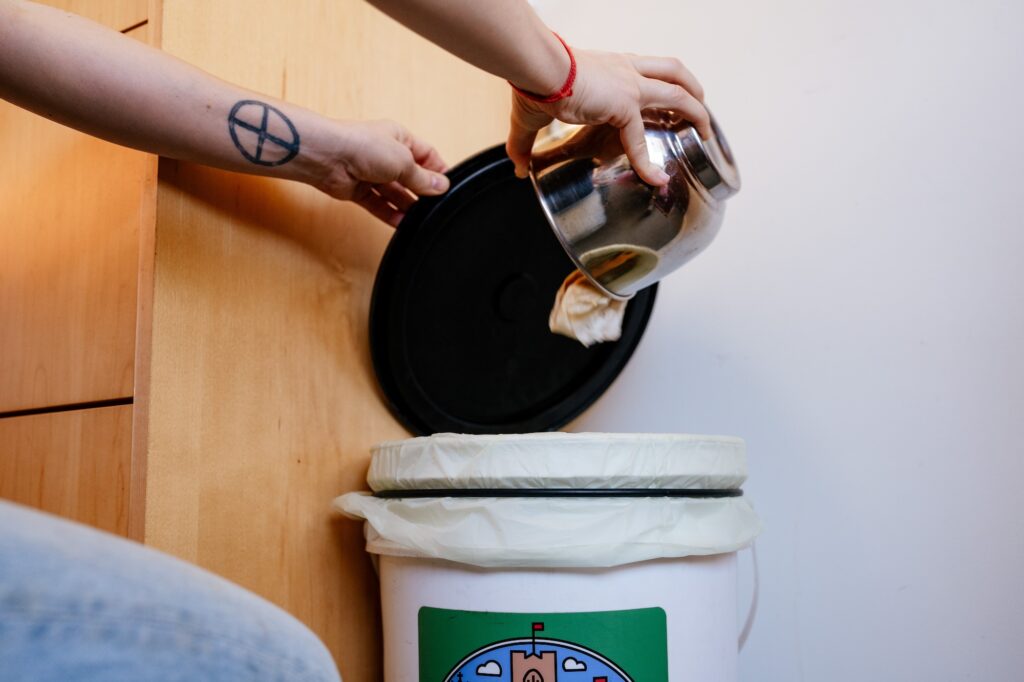
Photo by Nick Hagen.
Still, small composters face systemic barriers—particularly in Detroit, where composting is only permitted as an accessory use to gardening. The city has offered mini-grants to support community composting, but long-term success depends on policy reform catching up with grassroots momentum.
“There’s no clear pathway if you want to do composting as your primary function,” said Tepfirah Rushdan, Detroit’s sustainability office director. Currently, composting is permitted only as part of farm operations under the city’s urban agriculture ordinance.
That means operations like Sanctuary Farms or Midtown Composting can’t scale up or centralize their work. In practice, the city’s ordinance limits their ability to process larger volumes of food waste or establish standalone composting hubs in residential or industrial zones.
Rushdan said the city has begun working to address some of these limitations by drafting a new permitting framework to legitimize and support small- to mid-scale composters. The goal is to distinguish them from industrial waste processors while supporting the development of local composting capacity.
“We’re trying to build the infrastructure in a way that reflects our neighborhoods and supports the circular economy,” she said. Still, without formal rules in place, operators risk enforcement action if neighbors raise nuisance complaints—even if the systems are well-maintained.
Despite these challenges, community-scale composting continues to grow. Detroiters like Manolescu, Edwards, and Kent say they are not just hauling waste—they’re building localized systems that model a more sustainable way forward. “We want people to see they’re part of something better,” Manolescu said.
Locals take action: Municipal and school programs and pilots
Beyond the neighborhood scale, several Michigan cities and school districts are launching programs to divert food scraps. Ann Arbor leads with citywide curbside compost pickup. Others, like Royal Oak, Southfield, and Ferndale, are experimenting with drop-off programs, school cafeteria sorting and feasibility studies.
The City of Southfield recently completed a food waste blueprint, which was adopted by its city council in February. But even proactive communities face steep hurdles, including the cost of running a municipal compost operation
“We would just have to purchase the carts and then hand them out to residents,” said Souzan Hanna, Southfield’s sustainability planner. Hanna said the city will try to secure as much grant funding as possible to implement the plan as it works to renegotiate terms with its waste hauler for single-family curbside pickup. In the meantime, it’s piloting a food waste pickup program in a multi-family complex.
Meanwhile, suburban Royal Oak Schools now composts food waste from students and kitchens district-wide. It began with parent volunteers in elementary cafeterias and has since expanded to upper grades.
“Yes, composting is expensive,” said food service director Mike Jacobs. The district pays CO Sustainability to haul the waste to a compost facility, and compostable trays cost four times as much as Styrofoam. “But sustainability is important to the district and the board,” he said, noting that less garbage hauling may offset some costs.
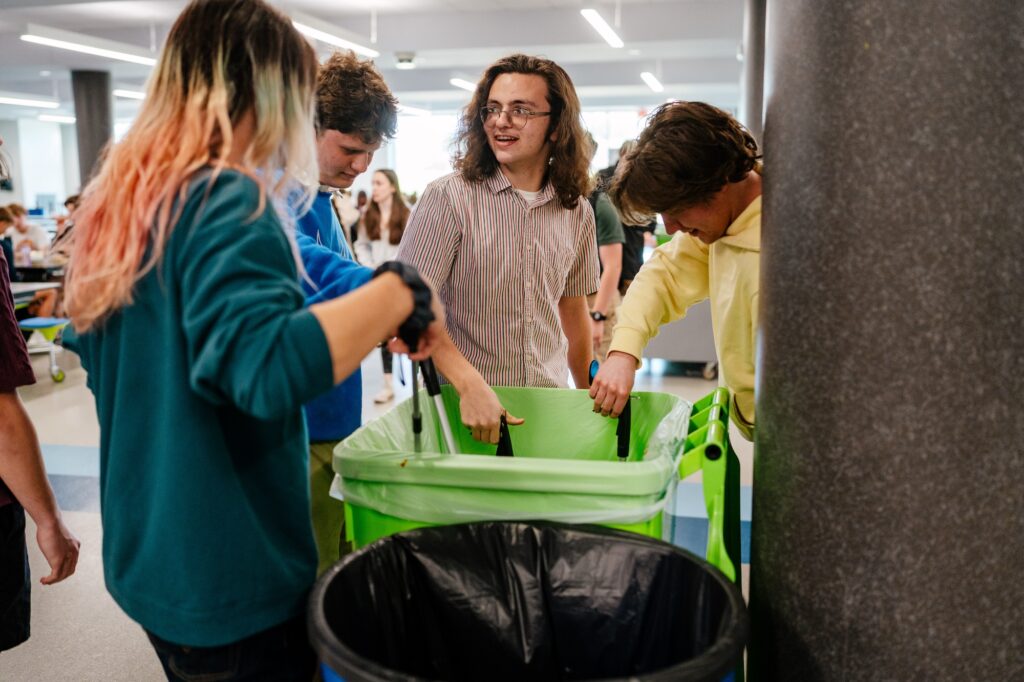
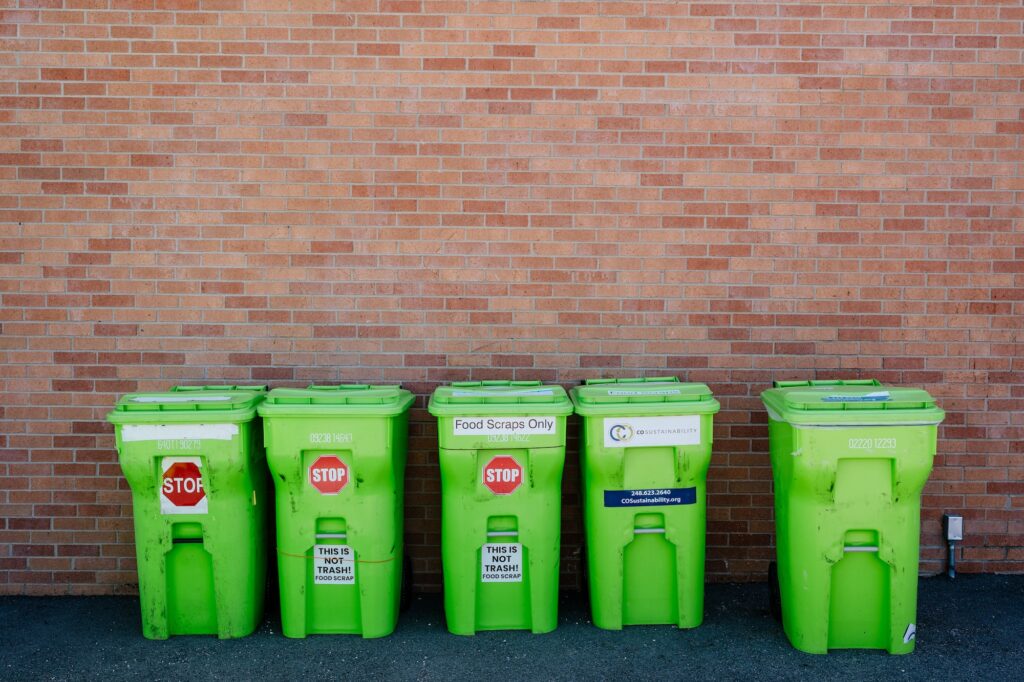
Meanwhile, GESU Catholic School in Detroit runs a DIY-style program that diverts food scraps to nearby Pingree Farms, where they’re fed to goats. Students use liquid waste to water campus trees.
“We’re not paying someone to haul the waste, and the kids are learning that food doesn’t have to be garbage,” said school advancement director Anita Sevier.
She said the school saves $1,400 per year by purchasing fewer trash bags, going from 15 bags to one per lunch hour. The school also saves $1,200 per year in trash pickup costs, which it reduced from three times a week to twice a week.
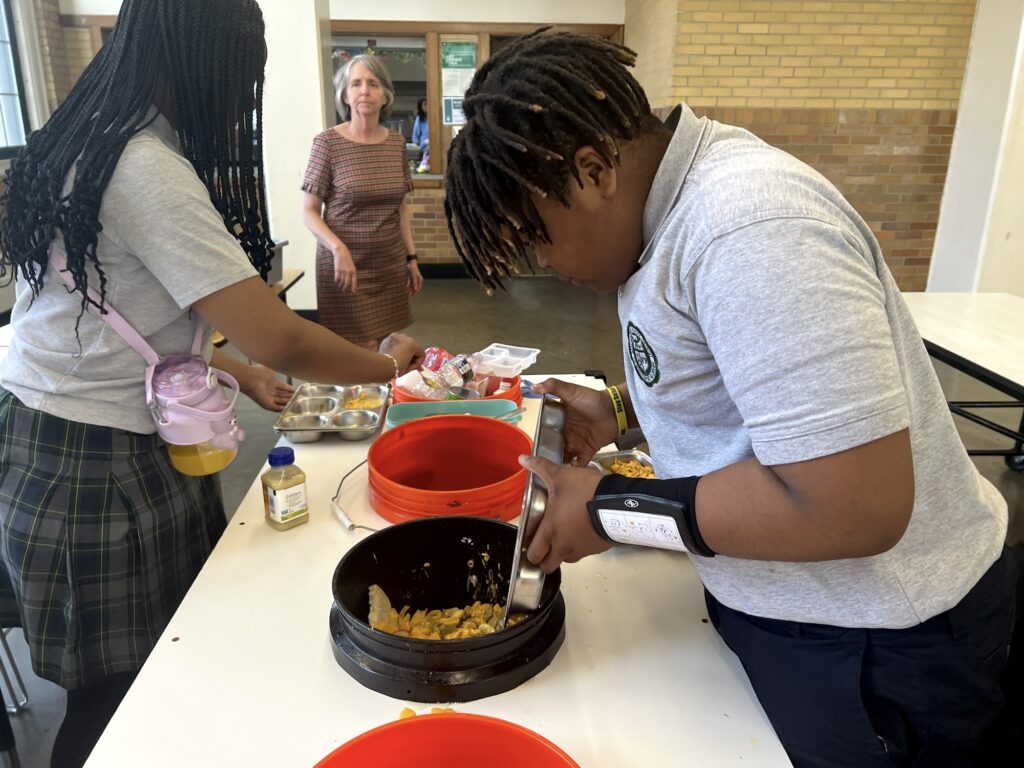
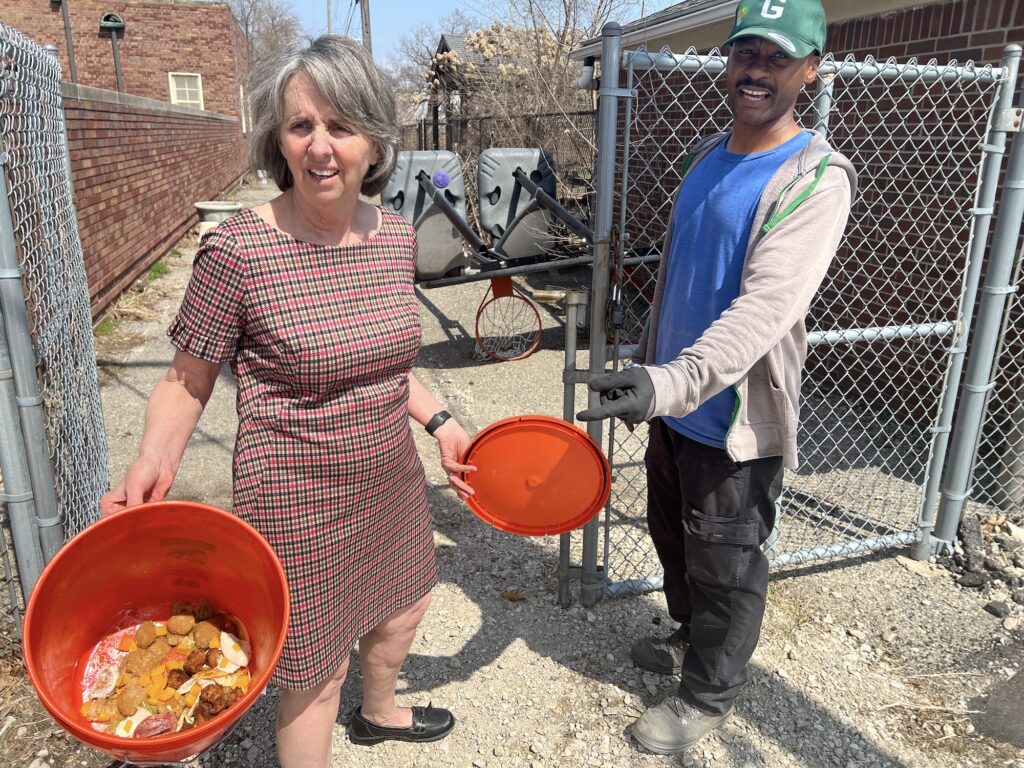
Ferndale operates a city-funded composting program that includes six residential drop-off locations, plus bins at city hall and both fire stations. Managed by the contractor My Green Michigan, the program has diverted over 577,000 pounds of food scraps since its launch in 2022. Scraps are hauled to a composting facility in Wixom, where they are processed into compost.
Logan Applebee, Ferndale’s Zero Waste Manager, said the drop-off model was chosen for its cost-effectiveness and accessibility. “There’s no added cost to residents, and drop-offs are open 24/7.”
By targeting materials like meat, bones, and certified compostable packaging—items that can’t be processed in typical backyard piles—Ferndale’s program offers an inclusive option for residents, including those in multi-family housing, Applebee said. “It makes composting simple. You don’t need a backyard or a collection cart—you just bring your scraps to a site near you.”
Despite a plateau in collection volume between 2023 and 2024, Applebee said the program continues to add new participants, emphasizing that the goal isn’t just about collecting pounds of waste. “If residents are buying and wasting less food, that’s a success too,” he said. “Composting is just one piece of the broader zero-waste strategy.”
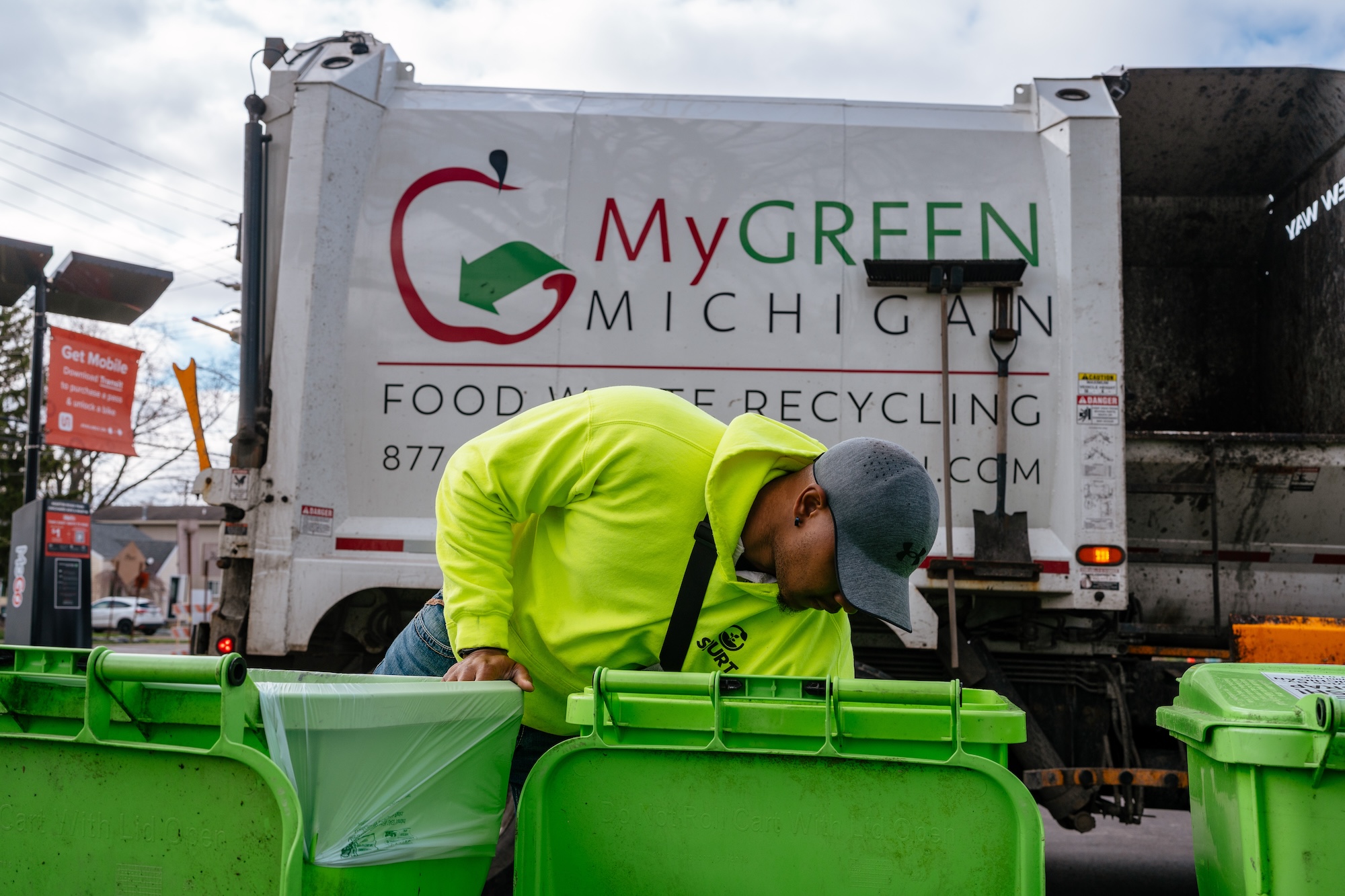
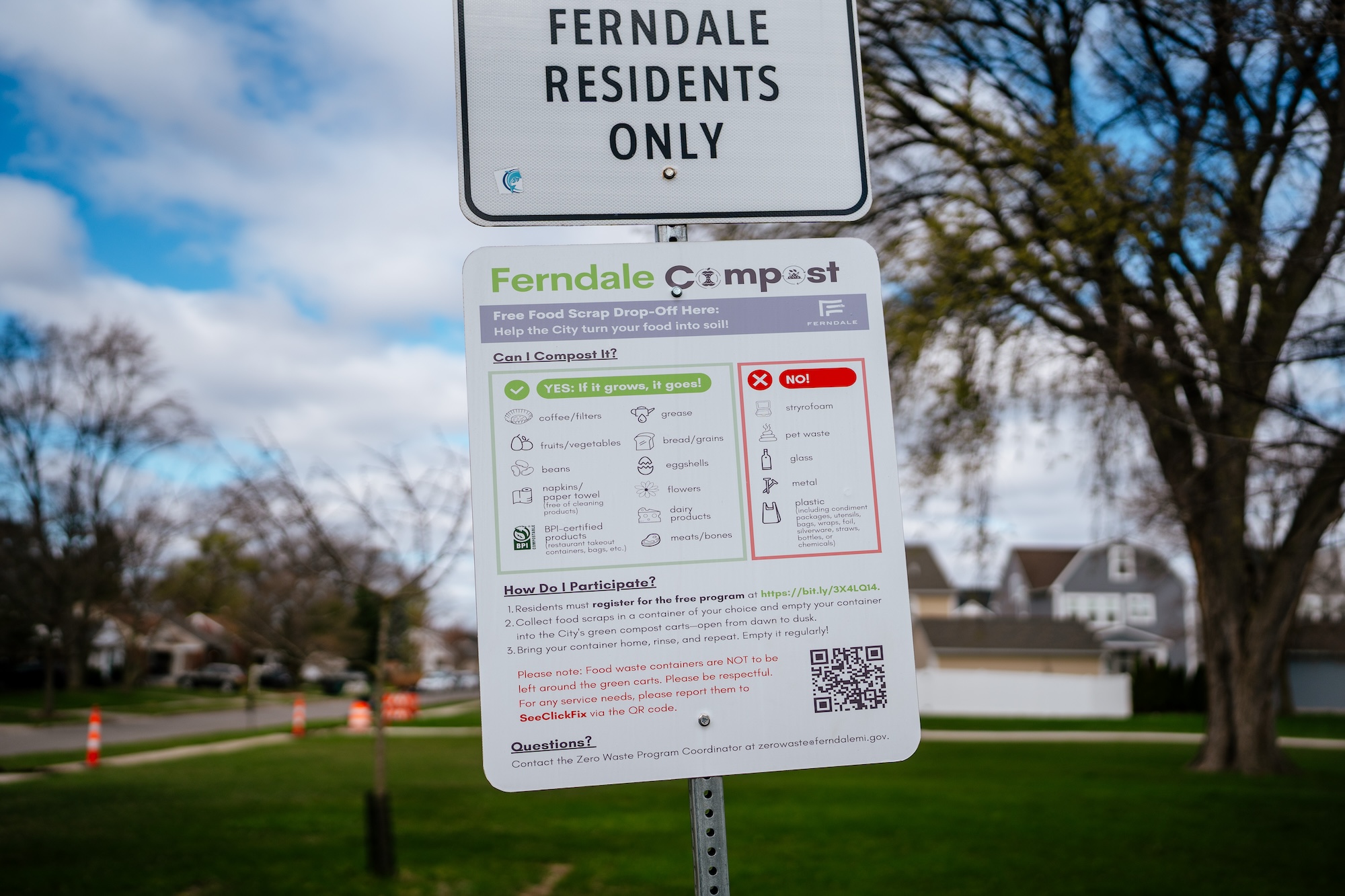
The road ahead: Scaling up
Michigan faces major structural barriers to broader composting adoption. The state produces an estimated 1.5 to 2 million tons of food waste each year, but just 11 of about 120 registered facilities received food waste in 2024.
“Infrastructure is the bottleneck,” said Mike Csapo, general manager of the Resource Recovery and Recycling Authority of Southwest Oakland County. “There are places to take food waste, but not enough capacity to support meaningful diversion at scale.”
One such facility is Spurt Industries, headquartered in Wixom, co-owned by Andrea Whitley and her husband, Bill Whitley. It’s one of only four composting operations in Michigan producing STA-certified compost, a national quality standard overseen by the U.S. Composting Council.
Spurt processes food waste collected by My Green Michigan — a hauling venture they co-operate that serves schools, restaurants, and corporate cafeterias across southern Lower Michigan.
“We want to make sure all of that food goes to an actual compost site that is registered with EGLE,” Whitley said, “and is turned into certified compost that meets strict safety and quality standards.” Spurt currently services Metro Detroit from its Wixom yard, helping fill a critical gap in local infrastructure.
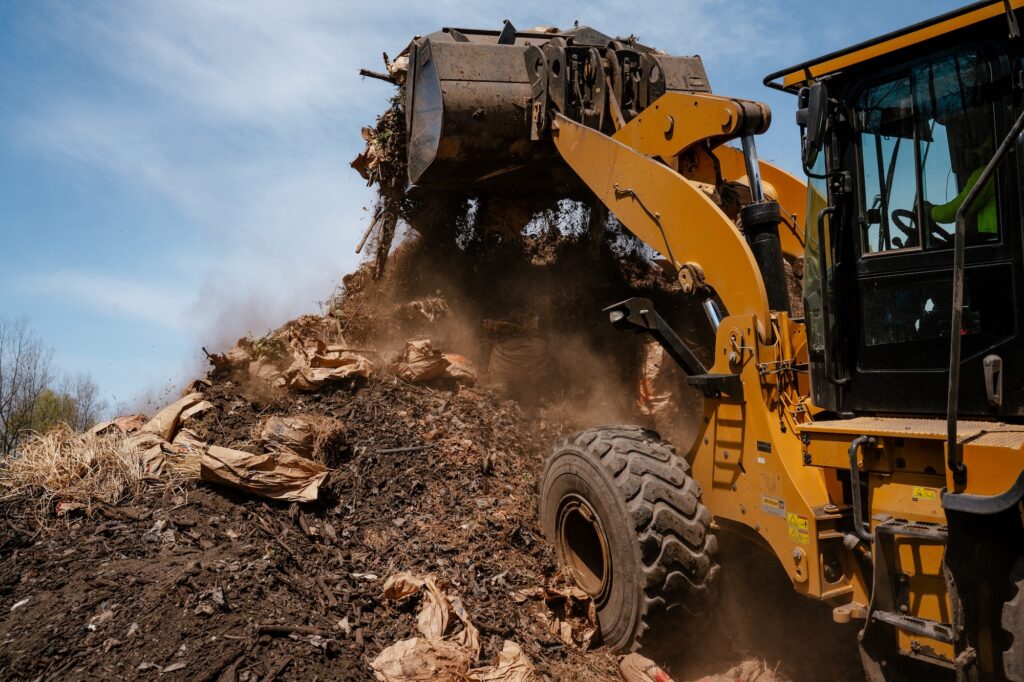
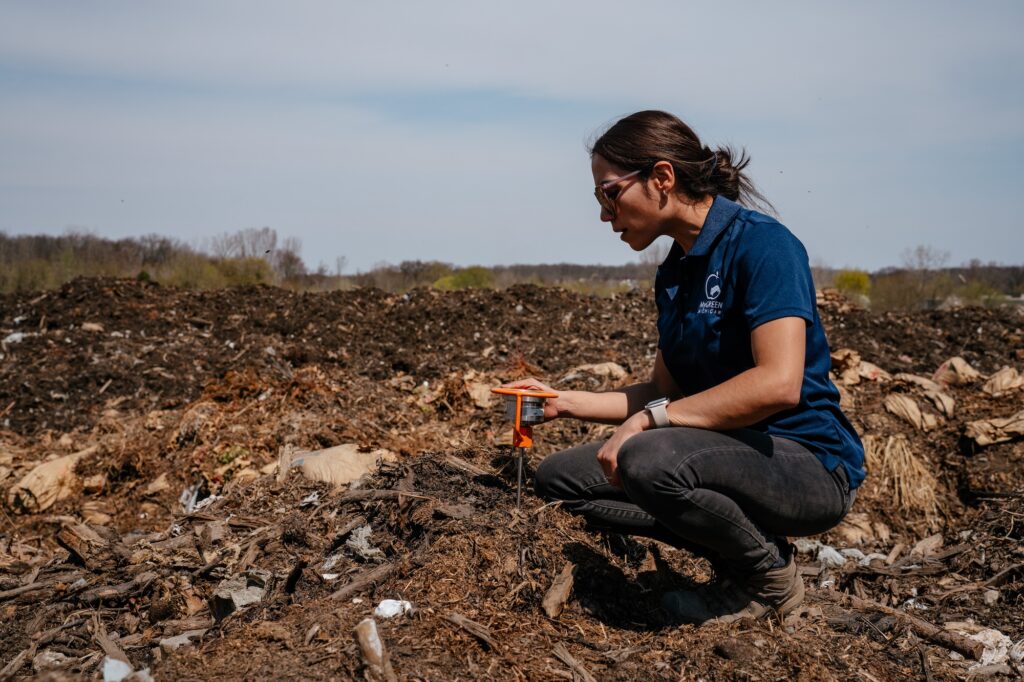
Starting a municipal composting program adds significant costs—estimated at $35 to $40 per household per year, according to Csapo. Private haulers and community-based programs fill some gaps, but they too face high operating costs and regulatory uncertainty.
Education is also a hurdle. “The biggest issue we run into is people not knowing there’s an option besides the trash can,” said Nancy St. Pierre of Denali, which collects food scraps from major retailers like Meijer and Walmart. “We’ve got residents who want to do the right thing,” added Jennifer McCullen, an account manager with My Green Michigan, “but the infrastructure isn’t always there.”
Policy is slowly catching up. Michigan’s 2023 update to its municipal solid waste law now requires counties to develop Materials Management Plans that address organic waste, including food waste. The MI Healthy Climate Plan, Michigan’s state plan for addressing climate change, also aims to cut food waste in half by 2030. But implementation is slow, and enforcement remains limited.
Experts say Michigan will need public investment in processing infrastructure, tax credits or grants for schools, haulers, and compost users and zoning and permitting reform. It will also need a strong market for finished compost.
“We’re not just talking about waste management,” said Daniel Schoonmaker, executive director of the West Michigan Sustainable Business Forum. “We’re talking about local economic development, climate mitigation, and soil health.”
This series, produced as part of the MIT Environmental Solutions Journalism Fellowship, investigates how Michigan’s food waste system contributes to climate change through landfill methane emissions—and explores the local solutions that could turn the tide. From farm to fridge to landfill, we examine how wasted food impacts our environment, economy, and communities, and highlight the people working to build a more sustainable, climate-friendly future. Published in partnership with Next City.
Compost or combust: Why wasted food is heating up the planet — and how Michigan can stop the rot
Data reporting and visualization contributed by Shelby Jouppi. Photography by Nick Hagen.

